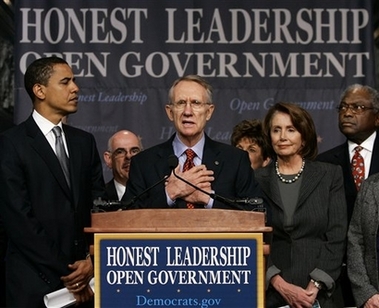Obama's Forgetten Delphi Workers
Three Cars Per Space As President Barack Obama touts his bailouts for the automakers as a key component of his economic success, it is important to not forget the worker’s of Delphi and…

Three Cars Per Space As President Barack Obama touts his bailouts for the automakers as a key component of his economic success, it is important to not forget the worker’s of Delphi and…
Teacher's in Chicago, Illinois have voted to authorize a strike over their demand for a 30% pay increase (funded by the taxpayers) and smaller classroom sizes. The union wants a two-year deal that reduces class size and calls for teachers to receive a 24 percent pay raise in the first year and a 5 percent pay raise in the second year. The strike would start at the beginning of the next school year should the union not come to terms with Mayor Rahm Emanuel. With their neighbors on one side in Indiana enacting a Right to Work statute and their neighbors on the other, in Wisconsin, enacting reforms to save taxpayers money, it is clear Big Labor in Illinois hasn't gotten the message. Taxpayers want reform, choice, efficiency and freedom. That message will take root in Illinois soon. Emanuel spokeswoman Sarah Hamilton said the public schools cannot afford a strike. "At a time when our graduation rates and college enrollments are at record highs – two successes in which our teachers played an integral role – we cannot halt the momentum with a strike," she said. "Our teachers deserve a raise, but our kids don't deserve a strike and taxpayers cannot afford to pay for 30 percent raises." You might remember this video from a previous Chicago/Illinois Teachers Union staged event titled "Give up the bucks!"
Teacher's in Chicago, Illinois have voted to authorize a strike over their demand for a 30% pay increase (funded by the taxpayers) and smaller classroom sizes. The union wants a two-year deal that reduces class size and calls for teachers to receive a 24 percent pay raise in the first year and a 5 percent pay raise in the second year. The strike would start at the beginning of the next school year should the union not come to terms with Mayor Rahm Emanuel. With their neighbors on one side in Indiana enacting a Right to Work statute and their neighbors on the other, in Wisconsin, enacting reforms to save taxpayers money, it is clear Big Labor in Illinois hasn't gotten the message. Taxpayers want reform, choice, efficiency and freedom. That message will take root in Illinois soon. Emanuel spokeswoman Sarah Hamilton said the public schools cannot afford a strike. "At a time when our graduation rates and college enrollments are at record highs – two successes in which our teachers played an integral role – we cannot halt the momentum with a strike," she said. "Our teachers deserve a raise, but our kids don't deserve a strike and taxpayers cannot afford to pay for 30 percent raises." You might remember this video from a previous Chicago/Illinois Teachers Union staged event titled "Give up the bucks!"

Fox All Star and syndicated columnist Charles Krauthammer discusses the meaning of the Wisconsin recall election and how taxpayers have finally had enough of Big Labor's power and pocketbook grabs while union bosses claimed mythical societal benefits arose from forced-dues: Tuesday, June 5, 2012, will be remembered as the beginning of the long decline of the public-sector union. It will follow, and parallel, the shrinking of private-sector unions, now down to less than 7 percent of American workers. The abject failure of the unions to recall Wisconsin Gov. Scott Walker (R) — the first such failure in U.S. history — marks the Icarus moment of government-union power. Wax wings melted, there’s nowhere to go but down. The ultimate significance of Walker’s union reforms has been largely misunderstood. At first, the issue was curtailing outrageous union benefits, far beyond those of the ordinary Wisconsin taxpayer. That became a nonissue when the unions quickly realized that trying to defend the indefensible would render them toxic for the real fight to come. But as the recall campaign progressed, the Democrats stopped talking about bargaining rights. It was a losing issue. Walker was able to make the case that years of corrupt union-politician back-scratching had been bankrupting the state. The real threat behind all this, however, was that the new law ended automatic government collection of union dues. That was the unexpressed and politically inexpressible issue. That was the reason the unions finally decided to gamble on a high-risk recall. Without the thumb of the state tilting the scale by coerced collection, union membership became truly voluntary. Result? Newly freed members rushed for the exits. In less than one year, -AFSCME, the second-largest public-sector union in Wisconsin, has lost more than 50 percent of its membership.

Edward Morrisey looks at the impact of recent victories in Wisconsin and Indiana arguing that this signals a watershed moment for reform: Have we reached a watershed moment for the labor movement? Earlier this year, Indiana became the first Rust Belt state to enact right-to-work laws. Arizona made their already-restrictive environment even tougher. And now, after targeting Wisconsin Governor Scott Walker and other republican lawmakers for more than a year, the labor movement has come up empty. In Wisconsin, Walker’s reforms of public-sector collective bargaining were at issue. Democrats nationwide allied themselves with the unions in pushing for recall elections, and liberal pundits promised they would stop this encroachment on labor prerogatives and send a lesson to other governors around the nation. In that, at least, they succeeded, but not in the way the unions had hoped. Despite the high-profile campaign waged by the labor movement in Wisconsin -- where unions have a long history of support – Wisconsin voters reaffirmed Walker as their governor. In fact, Walker won 125,000 more votes in the special recall election than he did in 2010, which was known as a wave election for Tea Party conservatives. He bested the same opponent, Milwaukee mayor Tom Barrett, by an even wider margin of seven points rather than the five-point victory 19 months earlier. The results exposed labor’s weakness rather than strength. While it might not encourage other states to take drastic action to reduce the collective bargaining power, the impotence of the unions in what had been the heart of the progressive Midwest certainly won’t convince anyone not to try. Thanks to the millions spent by the unions in a failed attempt at undoing the 2010 election, Big Labor might not have the resources to fight on this scale again, especially with the national election on the horizon. Nor was this the only big loss that unions took on Tuesday night. In California, where public-employee unions have exerted a strong influence on politics for decades, two cities defied the PEUs to pass badly-needed pension reforms. That may

Edward Morrisey looks at the impact of recent victories in Wisconsin and Indiana arguing that this signals a watershed moment for reform: Have we reached a watershed moment for the labor movement? Earlier this year, Indiana became the first Rust Belt state to enact right-to-work laws. Arizona made their already-restrictive environment even tougher. And now, after targeting Wisconsin Governor Scott Walker and other republican lawmakers for more than a year, the labor movement has come up empty. In Wisconsin, Walker’s reforms of public-sector collective bargaining were at issue. Democrats nationwide allied themselves with the unions in pushing for recall elections, and liberal pundits promised they would stop this encroachment on labor prerogatives and send a lesson to other governors around the nation. In that, at least, they succeeded, but not in the way the unions had hoped. Despite the high-profile campaign waged by the labor movement in Wisconsin -- where unions have a long history of support – Wisconsin voters reaffirmed Walker as their governor. In fact, Walker won 125,000 more votes in the special recall election than he did in 2010, which was known as a wave election for Tea Party conservatives. He bested the same opponent, Milwaukee mayor Tom Barrett, by an even wider margin of seven points rather than the five-point victory 19 months earlier. The results exposed labor’s weakness rather than strength. While it might not encourage other states to take drastic action to reduce the collective bargaining power, the impotence of the unions in what had been the heart of the progressive Midwest certainly won’t convince anyone not to try. Thanks to the millions spent by the unions in a failed attempt at undoing the 2010 election, Big Labor might not have the resources to fight on this scale again, especially with the national election on the horizon. Nor was this the only big loss that unions took on Tuesday night. In California, where public-employee unions have exerted a strong influence on politics for decades, two cities defied the PEUs to pass badly-needed pension reforms. That may

Minnesota Gov. Mark Dayton’s effort to coercively unionize thousands of home child care workers (read baby sitters) was rejected by the courts and he has refused to appeal. The effort was nothing more than a quid pro quo for…

Well, actually, President Barack Obama did very little to help his Big Labor Boss friends in Wisconsin. These are the same union bosses that spent over $1-Billion in forced-dues to get Obama elected president and to keep Nancy…

For one of the most powerful unions in America, the teacher’s union has a real image problem — and rightfully so. Only 22% of Americans…